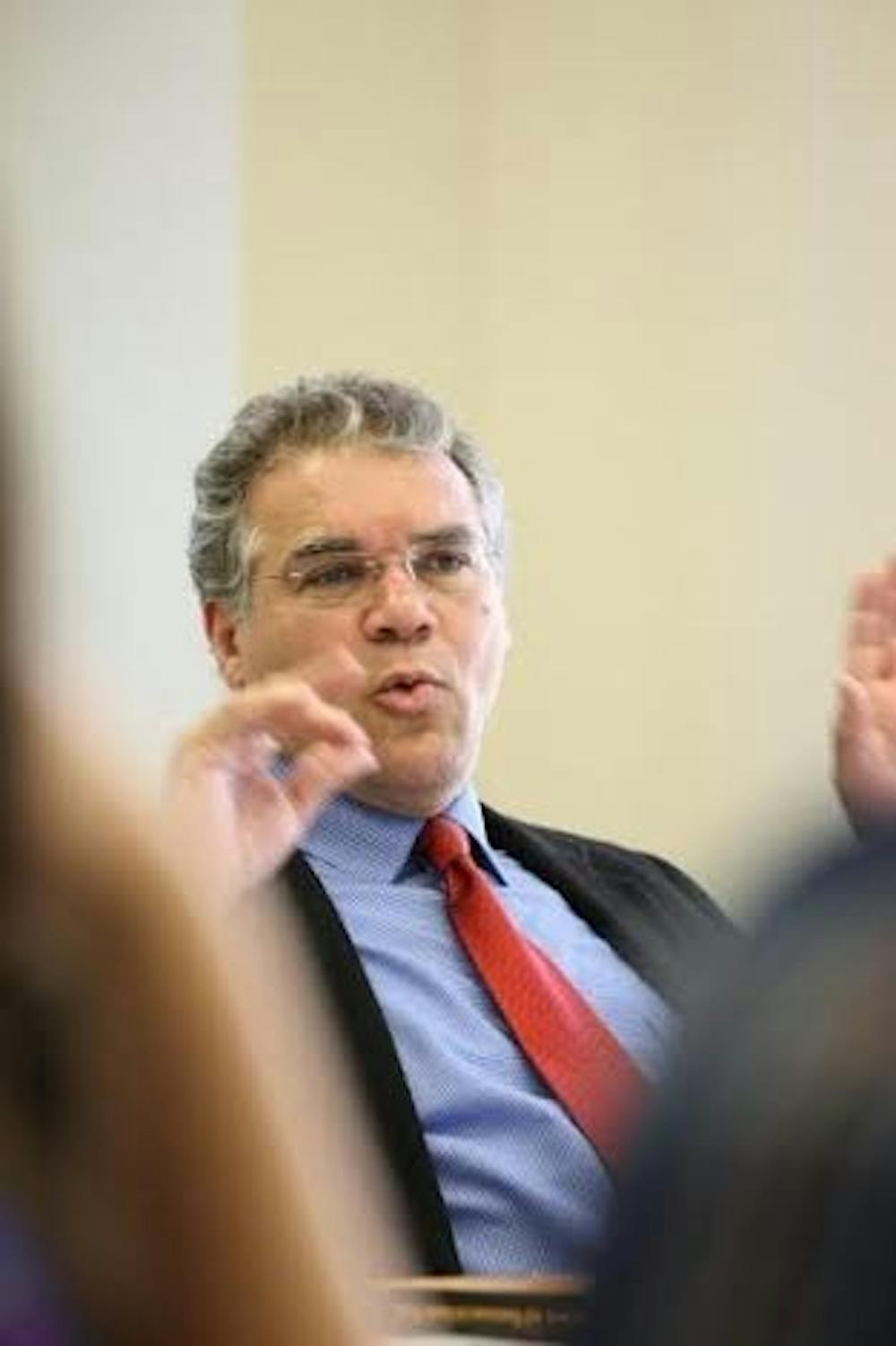The International Relations Organization kicked off its Spring 2014 Speaker Series Feb. 5 with a speech by Politics Prof. Robert Fatton on Nelson Mandela’s legacy.
The IRO has prepared an extensive list of diverse speakers for this year’s speaker series, pulling from University faculty and people outside the University.
“I hope [the series] gives people the opportunity to be exposed to different viewpoints and different issues they may not focus on in their studies at U.Va,” said IRO Vice President Alexander Webb, a fourth-year College student. “I just hope it gives [them] a chance to open up to different issues and perspectives [they] might not have thought about before.”
The IRO called on Fatton, an expert on the politics of South Africa and European regions with significant South African influence, in an effort to learn more about lesser-known regions. Fatton followed Nelson Mandela throughout his career and, given Mandela’s recent passing, focused his lecture on Mandela’s contribution to the end of white supremacy and his prominence in world politics.
“Mandela is a fascinating figure, so what I want to show is that he was indeed a historical icon,” Fatton said. “At the same time there were limitations to what he intended to do and he knew that himself.”
Fatton said that although Mandela was an influential figure, many people remain unaware of the rampant inequality that persists in South Africa. In the wake of the dissolution of Apartheid, several of Mandela’s goals went unachieved. South Africa remains in a sensitive and stratified state due to uneven distribution of wealth and land, he said.
“The transition is quite interesting — and at the same time, [it] can tell about how transitions occur and what the problems are,” Fatton said. “South Africa was arguably the last transition from a colonial period; it marks the end of colonialism in the world.”
Both Fatton and Webb said it was important for members of the University community to leave their “bubble” and understand issues in other nations. Many international issues, such as inequality in South Africa, have direct and indirect effects on the United States, Webb said.
“It’s really important to pay attention to what’s happening in other countries to build a better sense of understanding of the international community,” Webb said. “If citizens from other countries are looking out at what’s happening around the world it can help us tackle issues that can only best be handled on a [global] scale.”
The next speaker the IRO has scheduled is Ryan Crocker, a former ambassador to Syria and many other Middle Eastern countries. Crocker will discuss U.S. relations with Iran on Tuesday at 7 p.m.







